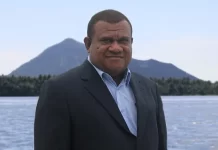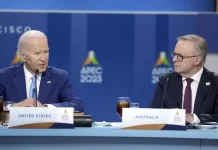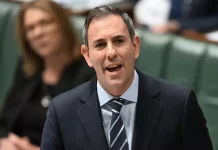NZ fisheries Minister Shane Jones’ close links to the fishing industry are under scrutiny once again, after New Zealand diplomats made an abrupt about-turn on a deep-sea conservation measure.
The inter-government body in charge of regulating high-seas fishing in the South Pacific, SPRFMO, convenes its annual meeting on Monday in Manta, Ecuador.
At last year’s gathering, the Cook Islands, backed by New Zealand, proposed measures to reduce bottom-trawling.
Once agreed by members, New Zealand delegates further developed the proposal into a paper, revising boundaries, which was presented to a meeting of SPRFMO scientists in September.
But now, the new National-led government has abandoned the proposal —baffling delegates and infuriating marine conservationists.
Ocean consultant Karli Thomas, of the Deep Sea Conservation Coalition, is an NGO observer member of the body. “To the world, it looks like we’re walking away from our commitments under what was a completely consensus-agreed decision a year ago,” she said.
NZ First MP Jones has long had links to the industry, and once chaired the Treaty of Waitangi Fisheries Commission, and fishing company Sealord. Ahead of the 2020 election, Jones received a $5000 (US$3,043) donation from Westfleet and $5000 (US$3,043) from Talley’s (2023 candidate returns are yet to be published).
Talley’s and its managing director gave nearly $27,000 (US$16,434.46) to the New Zealand First Foundation between 2017 and 2019. When the donations emerged in 2020, there were calls for a review of fishing policy decisions taken under the Labour-NZ First-Greens government during that period.
“It’s pretty shocking that someone so close to an industry and with a lack of concern, and a derision towards those that are looking to look after the resource, gets put in charge of that portfolio,” Thomas said.
Jones is unapologetic about championing the $5 billion (US$3 billion) industry.
“I’m no stranger to the concerns and the criticisms that a person of my background should not be the fisheries minister. It’s actually the opposite: a person with that background is ideally suited because our government is very focused on export-led recovery and ensuring that our industry generates the revenue and the dividend that helps keep people in jobs.”
The row centres around a decision to restrict the areas where bottom trawling is allowed to take place. The fishing method is controversial because of damage done to slow-growing coral, and sea sponge, an integral part of the underwater ecosystem.
Just a handful of national fleets use the practice of dragging heavy fishing gear across seabed features, and New Zealand is the only country doing it in the South Pacific.
The initial proposal developed by officials in Avarua and Wellington would have banned trawling on 70 percent of biodiversity hotspots, like sea mounts. It was adopted, but other member states had pushed for 100 percent protection.
After September’s meeting, it was expected New Zealand would submit the revised proposal, adjusting boundaries, in December.
Instead, the paper came from Australia’s delegates, which Thomas said is unusual, particularly because New Zealand has not co-sponsored the proposal.
The move has raised eyebrows among delegates, particularly as the current catch is low, Thomas said. The New Zealand fleet caught only 20 tonnes of orange roughy in the SPRFMO area in 2021 and the following year, didn’t trawl there at all.
At the same time, New Zealand has also submitted a proposal pushing for three years of orange roughy in one year. It is a response to a decision taken last year to halve the allowed catch of the under-pressure species in the high seas.
“It appears that New Zealand is preparing to renege on an agreement that it, along with other SPRFMO member states, negotiated in a working group throughout 2023, and for which New Zealand scientists have gathered the data and mapped out boundaries,” Thomas said.
Kayla Kingdon- Bebb, WWF’s New Zealand chief executive, said she had received messages of concern from international colleagues about the U-turn.
“There is a lot of concern about New Zealand resigning from the rules-based order. Historically, New Zealand has been seen as a good-faith operator, and then for a country to turn away from a decision taken by consensus is quite significant.”
Kingdon-Bebb said Jones was also doing a disservice to industry players who were taking a lead on sustainability. “The big operators, the ones that are commercially savvy … are aware that market conditions are shifting in a way that mean going backwards on environmental protection and climate action is, long-term, going to shoot them in the foot.”
But Jones said a new government was entitled to change position, and he wanted more time to understand the impact of closing the sea mounts to fishing.
“I acknowledge that work has been done. But all sovereign governments are entitled to take stock of where they find themselves in the ebb and flow of global affairs… [It’s] buying enough time to ensure that when we make these decisions, they don’t represent an irreversible closure of opportunity for New Zealand’s future.
“I have to be very candid with the other stakeholders. I am a pro-industry politician. I have never once hidden that from New Zealand.
“And I’m willing to face the critics, and it doesn’t mean that we’re undermining New Zealand’s ability to be a responsible global citizen. But, we better look after our own people, said Jones.
SOURCE: THE POST/PACNEWS















